#bantu
Text
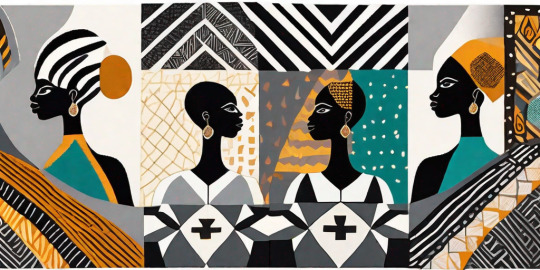
Bakongo spiritual protections influenced African American yard decorations. In Central Africa, Bantu-Kongo people decorated their yards and entrances to doorways with baskets and broken shiny items to protect from evil spirits and thieves.

This practice is the origin of the bottle tree in Hoodoo. Throughout the American South in African American neighborhoods, there are some houses that have bottle trees and baskets placed at entrances to doorways for spiritual protection against conjure and evil spirits.
In addition, nkisi culture influenced jar container magic. An African American man in North Carolina buried a jar under the steps with water and string in it for protection. If someone conjured him the string would turn into a snake. The man interviewed called it inkabera

#inkabera#nkisi#hoodoo#african american#african traditional religions#kongo#bantu#central africa#north carolina#bottles#african#afrakan#kemetic dreams#africans#brownskin#afrakans#african culture#afrakan spirituality#glass#dishware#wood#glassware#hearts
132 notes
·
View notes
Text


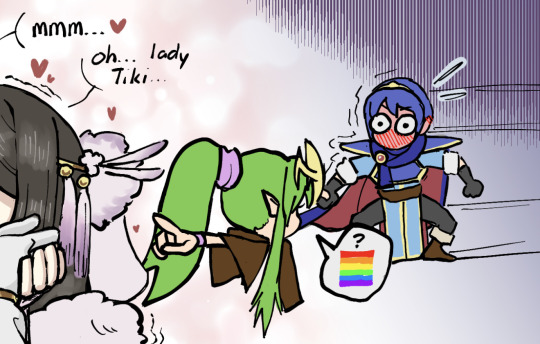
“I am used to loss. Do not deprive me from the joy of ever having.”
I hope my fellow Say’riki enjoyers have a good day! ❤️
#fire emblem#fe13#say’ri#tiki#tiki fire emblem#fire emblem awakening#say’riki#wlw#art#illustration#feh#fire emblem heroes#marth#young tiki#adult tiki#bantu
389 notes
·
View notes
Text
#Hebrew#uploads#videos#Africa#South Africa#Bantu#Bantu tribe#mzansi#Ethiopia#black history#black history month
126 notes
·
View notes
Text
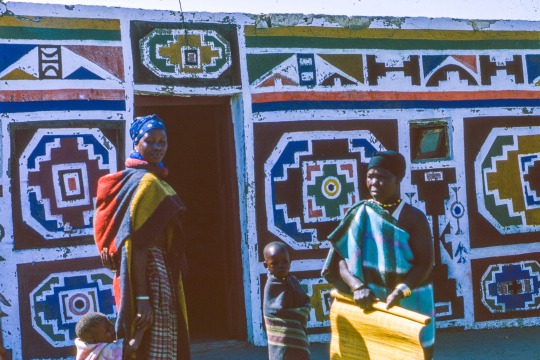
#1964#1960s#women#africa#bantu#people#kodachrome#found photo#bantu people#vernacular photography#vintage#found slide#kodak film#old photo#old photography#vintage photography#found photography#vintage photos#kodak#old photos
26 notes
·
View notes
Text
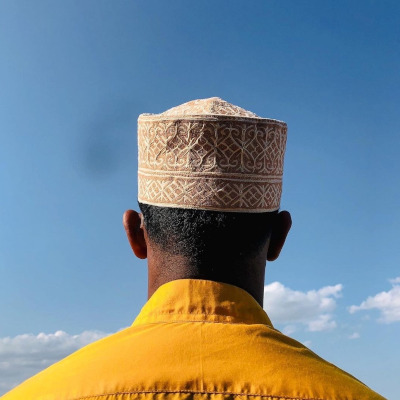
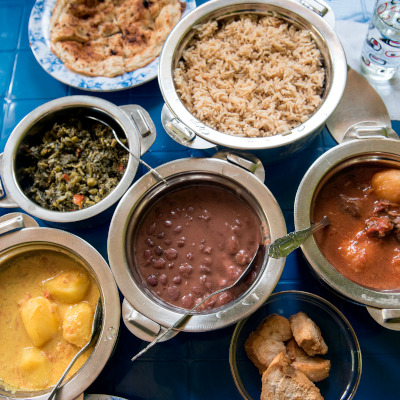
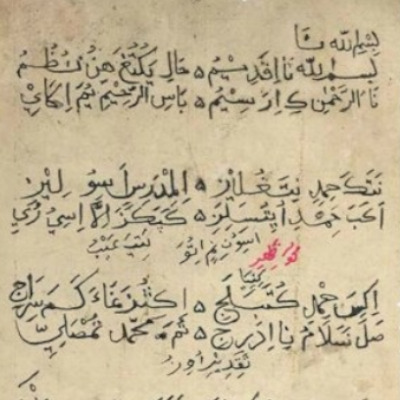
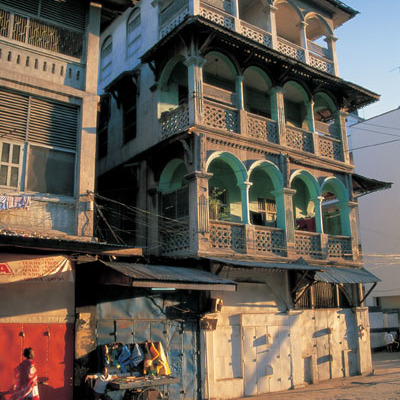



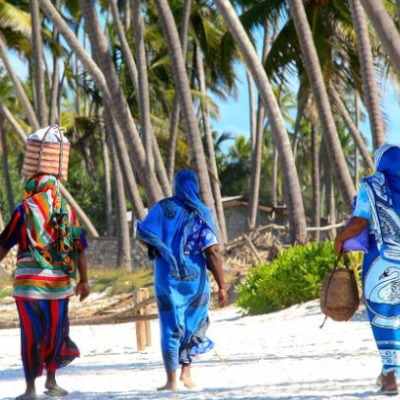

Aesthetic of the languages on earth : Swahili
Swahili is a Bantu language spoken by 80 million people over the African East Coast. It is an official language in Tanzania, Kenya, Rwanda and Uganda. It is a recognized minority language in Burundi, the Democratic Republic of the Congo, and Mozambique.
#swahili#aesthetic#languages#moodboard#language#geography#bantu#tanzania#africa#kenya#rwanda#uganda#burundi#drc#mozambique#atlanticcongo
59 notes
·
View notes
Text
Untranslatable words (part 3)
Here are part 1 and part 2. I have also made other posts with untranslatable words in Spanish and German.
Arabic: غرفة [ḡurfa] (the amount of water that can be held in one hand), يقبرن [yaqbirna] (literally “may you bury me”, wishing that a loved one outlives you because of how unbearable life would be without them)
Bantu: mbuki-mvuki (to shed one’s clothing spontaneously and dance naked in celebration)
Dutch: gezellig (cozy, nice, pleasant, sociable), struisvogelpolitiek (literally “ostrich politics”, an evasive style of politics that fails to address problems by either ignoring them or by creating a false sense of security through ineffective measures)
Finnish: poronkusema (the distance a reindeer can comfortably travel before taking a break, around 7.5 kilometers/4.7 miles)
French: feuillemorte (of the color of a faded, dying leaf), l’appel du vide (literally “the call of the void”, the inexplicable draw of the dangerous and unknown future), noceur (someone who goes to sleep late or not at all or one who stays out late to party)
German: Drachenfutter (literally “dragon fodder”, the gift a husband gives a wife when he is trying to make up for bad behaviour), Kabelsalat (literally “cable salat”, cable clutter)
Greek: μεράκι (intense passion)
Hungarian: szimpatikus (nice, likeable)
Japanese: ぼけっと [boketto] (gazing vacantly into the distance without thinking about anything), 風物詩 [fūbutsushi] (the things that evoke memories of a particular season)
Hawaiian: ʻakihi (listening to directions and then walking off and promptly forgetting them)
Hindi: जुगाड़ (jugāṛ) (a process or technique that lessens disorder in one’s life, making it easier to manage or more convenient)
Icelandic: tíma (not being ready to spend time or money on a specific thing despite being able to afford it)
Indonesian: jayus (a joke so terrible and unfunny it can’t help but make you laugh)
Inuktitut: ᐃᒃᑦᓱᐊᕐᐳᒃ [iktsuarpok] (the act of repeatedly going outside to check if someone is coming)
Italian: commuòvere (to move in a heartwarming way)
Malay: pisan zapra (the time needed to eat a banana)
Norwegian: forelsket (the indescribable feeling of euphoria experienced as one begins to fall in love)
Portuguese: nefelibata (literally “cloud-walker”, one who lives in the clouds of their own imagination or dreams or does not obey the conventions of society), saudade (a vague, constant desire for something that does not and probably cannot exist, a nostalgic longing for someone or something loved and then lost)
Russian: разлюбить (razliubit) (to fall out of love)
Sanskrit: कल्प [kalpa] (the passing of time on a grand cosmological scale)
Scottish Gaelic: sgrìob (the peculiar itchiness that settles on the upper lip before taking a sip of whiskey)
Spanish: cotisuelto (someone who insists on wearing their shirt tails untucked)
Swedish: mångata (the roadlike reflection of the moon on the water), smultronställe (literally “place of wild strawberries”, a special place treasured for solace and relaxation, free from stress or sadness), tretår (on its own, “tår” means a cup of coffee and “patår” is the refill of said coffee, so a “tretår” is therefore a second refill)
Tagalog: kilig (to experience shivers and suffer pangs from strong emotions, usually romantically)
Ursu: گویا [goyā] (a transporting suspension of disbelief, an “as-if” that feels like reality), ناز [nāz] (the pride and assurance that comes from knowing one is loved unconditionally)
Wagiman: murr-ma (the act of searching for something in the water with only one’s feet)
Welsh: glas wen (literally “blue smile”, one that is sarcastic or mocking), hiraeth (homesickness, nostalgia, a longing for somewhere one cannot or will not return to)
Yiddish: לופֿטמענטש [luftmentsh] (literally “air person”, someone who is a bit of a dreamer)
#langblr#arabic#bantu#dutch#finnish#french#german#greek#hungarian#japanese#hawaiian#hindi#icelandic#indonesian#inuktitut#italian#malay#norwegian#portuguese#russian#sanskrit#scottish gaelic#spanish#swedish#tagalog#ursu#wagiman#welsh#yiddish
139 notes
·
View notes
Text
Tales of Kenzera: ZAU is out now.
Inspired by Bantu mythology and folklore.
13 notes
·
View notes
Text
Best Fire Emblem Parent Tournament: Round 1 - Match 32
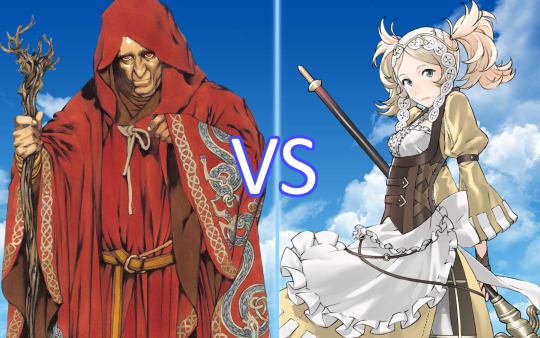
72 notes
·
View notes
Text
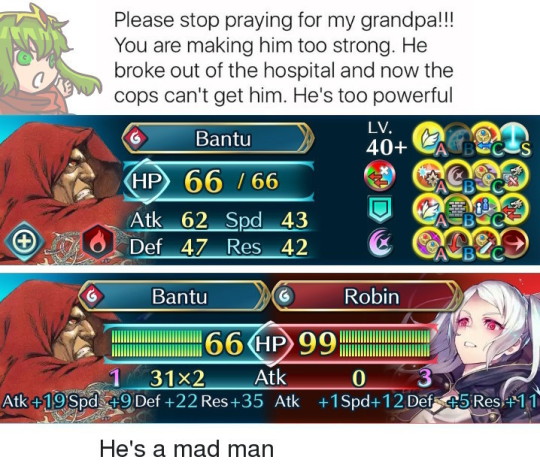
That was a pretty fun mode! Gonna miss having all those skills though...
54 notes
·
View notes
Note
Omggg can you please do Buntu from ala vaikunthapurramuloo, thank you so much !!!
BELIEVE ME WHEN I SAY I'VE HAD THIS MAN ON MY MIND ALL DAY-
Bantu《Ala Vaikunthapurramuloo》Romance Dialogue Set

Requests are open, and my asks and inbox are always open!
"Love isn't just about grand gestures; it's in the little things, like stealing glances and sharing smiles."
"In this chaotic world, you're my calm, my anchor. Everything else fades when I'm with you."
"I may not be a poet, but when I'm with you, my heart sings the most beautiful songs."
"Our love story is like a perfectly choreographed dance, every step leading us closer together."
"Life may be unpredictable, but one thing I'm sure of is that I want to spend it with you."
☆○☆○☆○☆○☆○☆○☆○☆○☆○☆○☆○☆○☆○☆○☆
Taglist: @allari-ammayi , @vellipo-mellaga , @vijayasena Let me know if you wish to be part of my future taglists!
Note: Requests are open, I write mostly for telugu characters, but I also accept general Indian!!
#desi#desi tumblr#desiblr#dialogue#dialogue prompt#telugu#tollywood#x reader#y/n#yn#ala vaikuntapuramulo#ala Vaikuntapuram#ala vaikunthapurramuloo#Ala Vaikunthapurramuloo x reader#bantu#bantu x reader#allu arjun#allu arjun x reader#prompts#romance
21 notes
·
View notes
Text
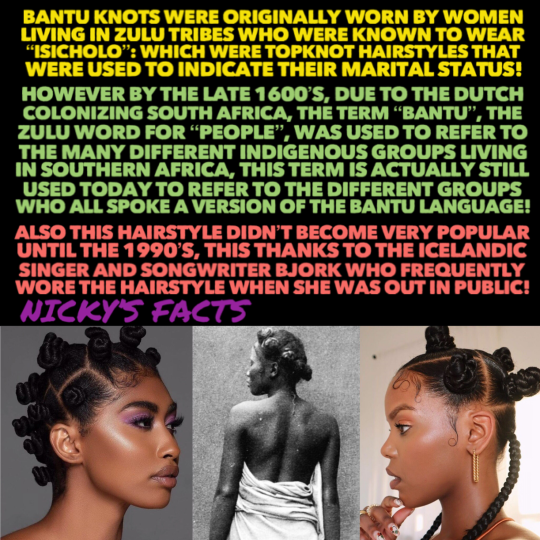
I love how Bantu Knots are not only a beautiful hairstyle, but also has had so many different meanings behind it!
💜🇿🇦
#history#bantu knots#hairstyle#zulu#south africa#pre colonial africa#womens history#black hairstyles#bantu#femininity#isicholo#african women#black girl magic#south african history#language#black coquette#black femininity#soft girl#girly things#zulu history#african femininity#hair#bjork#african history#feminine#coquette#feminine history#african culture#historical hairstyles#nickys facts
128 notes
·
View notes
Photo
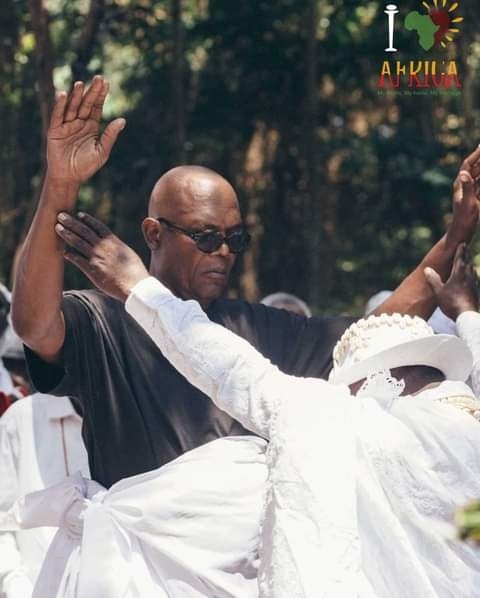


American actor Samuel L. Jackson traces his origins back to the Bantu tribe of Gabon
The Bantu people are the speakers of Bantu languages, comprising several hundred indigenous ethnic groups in sub-Saharan Africa, spread over a vast area from Central Africa across the African Great Lakes to Southern Africa.
He was welcomed as a lost son by the Benga people and was inducted into the Benga tribe, with rare and unprecedented access to secret ceremonies and local customs.

#kemetic dreams#samuel l jackson#gabon#bantu#african#africans#african ancestry#dna#african dna#dna test
268 notes
·
View notes
Audio
Lingthusiasm Episode 76: Where language names come from and why they change
Language names come from many sources. Sometimes they’re related to a geographical feature or name of a group of people. Sometimes they’re related to the word for “talk” or “language” in the language itself; other times the name that outsiders call the language is completely different from the insider name. Sometimes they come from mistakes: a name that got mis-applied or even a pejorative description from a neighbouring group.
In this episode, your hosts Gretchen McCulloch and Lauren Gawne get enthusiastic about how languages are named! We talk about how naming a language makes it more legible to broader organizations like governments and academics, similar to how birth certificates and passports make humans legible to institutions. And like how individual people can change their names, sometimes groups of people decide to change the name that their language is known by, a process that in both cases can take a lot of paperwork.
Read the transcript here.
Announcements:
We’re doing another Lingthusiasm liveshow! February 18th (Canada) slash 19th (Australia)! (What time is that for me?) We'll be returning to one of our fan-favourite topics and answering your questions about language and gender with returning special guest Dr. Kirby Conrod! (See Kirby’s previous interview with us about the grammar of singular they.)
This liveshow is for Lingthusiam patrons and will take place on the Lingthusiasm Discord server. Become a patron before the event to ask us questions in advance or live-react in the text chat. This episode will also be available as an edited-for-legibility recording in your usual Patreon live feed if you prefer to listen at a later date. In the meantime: tell us about your favourite examples of gender in various languages and we might include them in the show!
In this month’s bonus episode we get enthusiastic about some of our favourite deleted bits from previous interviews that we didn't quite have space to share with you. Think of it as a special bonus edition DVD from the past two years of Lingthusiasm with director's commentary and deleted scenes from interviews with Kat Gupta, Lucy Maddox, and Randall Munroe.
Join us on Patreon now to get access to this and 70+ other bonus episodes, as well as access to the Lingthusiasm Discord server where you can chat with other language nerds, and get access to our upcoming liveshow!
Here are the links mentioned in the episode:
‘A grammatical overview of Yolmo (Tibeto-Burman)’ by Dr Lauren Gawne
‘Language naming in Indigenous Australia: a view from western Arnhem Land’ by Jill Vaughan, Ruth Singer, and Murray Garde
Wikipedia List of Creole Languages
Wikipedia entry for Métis/Michif
‘A note on the term “Bantu” as first used by W. H. I. Bleek’ by Raymond O. Silverstein
Lingthusiasm episode ‘How languages influence each other - Interview with Hannah Gibson on Swahili, Rangi, and Bantu languages’
Wikipedia entry for Endonym and Exonym
All Things Linguistic post on exonym naming practices in colonised North America
Tribal Nations Map of North America
Wikipedia entry for Maliseet
OED entry for ‘endoscope’
Wikipedia entry for Light Warlpiri
Language Hat entry for Light Warlpiri
Los Angeles Times article about the use of Diné instead of Navajo
OED entry for ‘slave’
Wikipedia entry for names of Germany
You can listen to this episode via Lingthusiasm.com, Soundcloud, RSS, Apple Podcasts/iTunes, Spotify, YouTube, or wherever you get your podcasts. You can also download an mp3 via the Soundcloud page for offline listening. To receive an email whenever a new episode drops, sign up for the Lingthusiasm mailing list.
You can help keep Lingthusiasm advertising-free by supporting our Patreon. Being a patron gives you access to bonus content, our Discord server, and other perks.
Lingthusiasm is on Facebook, Tumblr, Instagram, Pinterest, and Twitter.
Email us at contact [at] lingthusiasm [dot] com
Gretchen is on Twitter as @GretchenAMcC and blogs at All Things Linguistic.
Lauren is on Twitter as @superlinguo and blogs at Superlinguo.
Lingthusiasm is created by Gretchen McCulloch and Lauren Gawne. Our senior producer is Claire Gawne, our production editor is Sarah Dopierala, and our production assistant is Martha Tsutsui Billins. Our music is ‘Ancient City’ by The Triangles.
This episode of Lingthusiasm is made available under a Creative Commons Attribution Non-Commercial Share Alike license (CC 4.0 BY-NC-SA).
#linguistics#language#episodes#main episodes#episode 76#names#language names#Arnhem Land#Yolmo#Creole#Kriol#Métis#Michif#Bantu#Swahili#endonym#exonym#Maliseet#Warlpiri#Light Warlpiri#Diné#Navajo#Slavic#German
105 notes
·
View notes
Text
instagram
#DRC#stop the genocide#in#DRC Congo#Goma#Instagram#Bantu#people#life#peace in DRC#peace#congo genocide#free congo#save congo#congo#congolese#Congo ya biso#mbaka ya biso#dr congo#democratic republic of the congo#Congolais#central africa#East Africa
9 notes
·
View notes
Text
Menolong dengan Tidak Menolong
Kadang cara menolong terbaik itu dengan tidak menolong. Biarkan dia melewati kesulitannya sendiri. Menjalani serangkaian kesulitan yang mungkin akibat dari kesalahannya. Supaya itu menjadi pelajaran penting bagi dirinya.
Menolong itu terkadang justru membuat seseorang menjadi-jadi. Melakukan kembali kesalahan yang diperbuat dimasa lalu sebab merasa aman dengan akibatnya dimasa depan. Sama saja kita menjerumuskan bukan?
Saya dulu mempunyai teman. Suatu kali dia terjerat hutang berbunga. Lalu dengan sedikit yang saya punya untuk coba membantunya. Tapi setelahnya itu kejadian serupa berulang-ulang. Bahkan untuk hal-hal yang tidak mendesak ia melakukannya lagi.
Sesekali memang kita harus kejam kepada orang lain. Bahkan kepada orang-orang terdekat kita. Rasa sayang seringkali justru membiaskan. Tidak menolong bukan berarti kita ingin menghancurkannya dimasa ini. Tetapi menyelamatkannya dimasa depan.
153 notes
·
View notes
Text





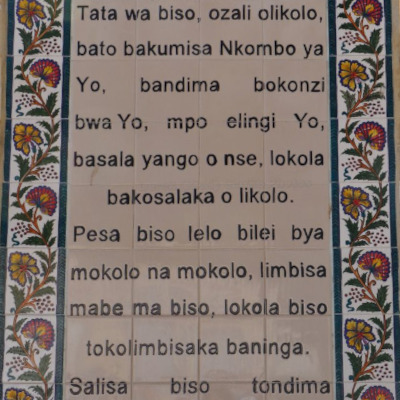

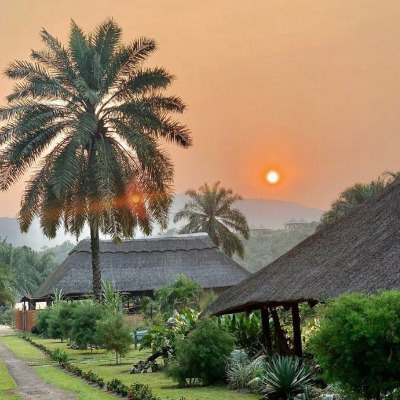
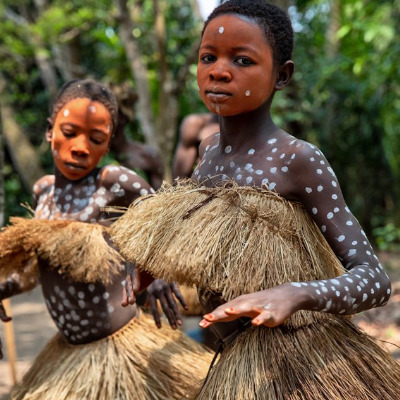
Aesthetic of the languages on earth : Lingala
Lingala is Bantu language spoken by around 60 million people over Congo and neighboring countries. It is an official language of the Democratic Republic of the Congo and the Republic of Congo.
#lingala#bantu#aesthetic#languages#moodboard#language#geography#africa#democratic republic of the congo#republic of the congo#congo#atlanticcongo
20 notes
·
View notes